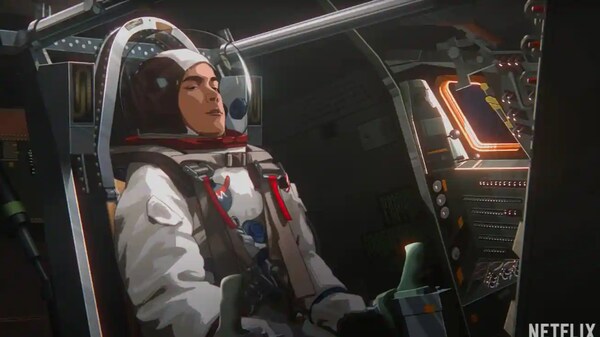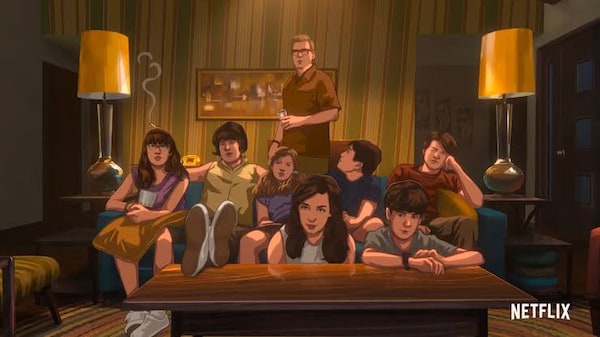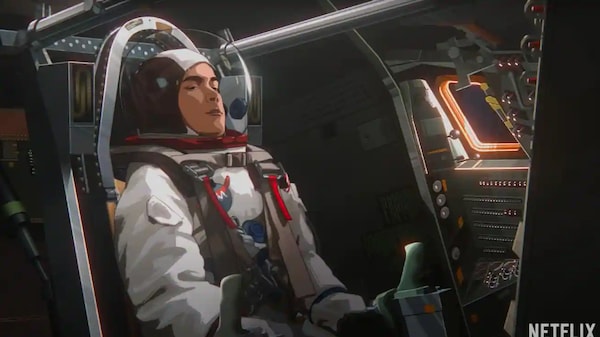Apollo 10 ½ review: Richard Linklater’s magic takes us back to 1969 and it’s simply marvellous
The filmmaker’s brilliance is in how he is able to get the tiniest details from 1960’s Texas and bring it onto the screen. The feeling of wanting to live then and there after is the film’s biggest strength.

Last Updated: 07.59 PM, Apr 01, 2022
Story:
Stanley is a nine-year-old who lives in Houston, Texas and is recruited by NASA in 1969. He is asked to pilot a spaceship to the moon, because NASA made one that was too small. As he becomes the first human to step foot on the moon and has to keep it a secret from even his own family, the film gives a detailed look into the ever changing world, one that is hopeful of an amazing future.
Review:
Apollo 10 ½: A Space Age Childhood is in the simplest terms, Richard Linklater at his best. The film, which is set in 1969, does the job of transporting the viewer to the era of the space race. Set in Houston, Texas, it should be noted that Linklater has spent most of his life in Texas, and he has also succeeded in bringing the lifestyle, culture and innocence of the state in the 60’s to the screen.
The film is about NASA recruiting a school kid to pilot a spaceship and go to the moon, because they made a spacecraft that ended up being too small. As ridiculous as that may sound, we are all up and ready for the ride simply because it’s a Linklater film. And it does not disappoint.
The most impressive things to me, as someone who thinks to be born in the wrong era and loves stuff from the past, are all the pop-culture and ’60s nostalgia that the film is able to deliver. Linklater is known and adored for his taste in music and his choice of songs in his films, and Apollo 10 1 ⁄ 2 will be another film added to the list of Linklater films with great music. The musical references in the film, from The Beatles to Johnny Cash and Joni Mitchell performing Girl from the North Country, are all bound to have fans of good old music on their toes and enjoy every minute of it. When songs like Johnny Cash’s My Name is Sue or In The Year 2525 comes out, you simply can't help but sing along.
There are plenty of other references and mentions of stuff from the space race era, from Stanley Kubrick’s 2001: A Space Odyssey to Sound of Music and Astroturf to the first heart transplant, the director and writers have done a stellar job of taking the audience to the time and place where the film is set. The filmmaker also includes a long list of content on antenna televisions from back in the day like Star Trek, Batman, The Dick Van Dyke Show, Adam 12, Bewitched and many more.

While he takes us on a nostalgic ride to a time which most of us have not witnessed, a beautiful story also takes place. The second big piece of the story is the moon landing of Apollo 11. The film and its story is very much the filmmaker’s lived experience and it shows. Nothing else can also explain the accuracy at which he explains and showcases the innocence of a nine-year-old school boy living in the suburbs of 1969 Houston. From all the games played with the neighbours and family to all the things they've blown up, he explains the time as when, “they simply did not care”. Linklater also poses some important questions like how the U.S was fighting Vietnam and killing its people at the time, but parents were worried about Vietnamese children going hungry and how all the money put into the space missions could have actually fed many hungry black people.
While the first half is filled with nostalgia and is a time machine in itself, the second half is a beautifully painted picture of the space mission. The director is able to bring the secret space mission where a nine-year-old becomes the first human to land on the moon and the actual Apollo 11 mission together. This leads to a beautiful ending which is also cinematic and adds to the allure of the film.
The choice of motion capture and animation using a technique similar to rotoscoping has worked like a peach for the film, which has a story that calls for such a treatment. While an adult protagonist, Stanley, voiced by Jack Black, tells us that it all felt like a dream to his nine-year-old self, the treatment for the film gives us, the audience, a similar experience. Jack Black also receives a shoutout for doing a fantastic job, narrating the story with soul and love. This actor-director combo can’t do much wrong, even if Black isn't seen on screen.
The ending of the film offers a question to the viewer when a mother putting his son to sleep says, “You know how memory works, even if he is asleep, he’ll one day say he saw it all.” That is the essence of the film. Richard Linklater, who saw it all, has made a film that offers us a chance to see and experience it all. To follow a kid who dreamed of being an astronaut and ended up being the first human on the moon, and to live his story, as if it was our own.

Verdict:
Richard Linklater is at his very best in this film, which has an abundance of nostalgia and innocence and takes one to Houston of the late 1960s. While the film in itself is beautiful and has a number of references for the fans to catch, it offers a special experience. You just hope, for at least a second, that you were a child in Houston, Texas in 1969, enjoying life and looking up to the skies. And this makes Apollo 10 ½: A Space Age Childhood, a must watch.

 Premium
Premium